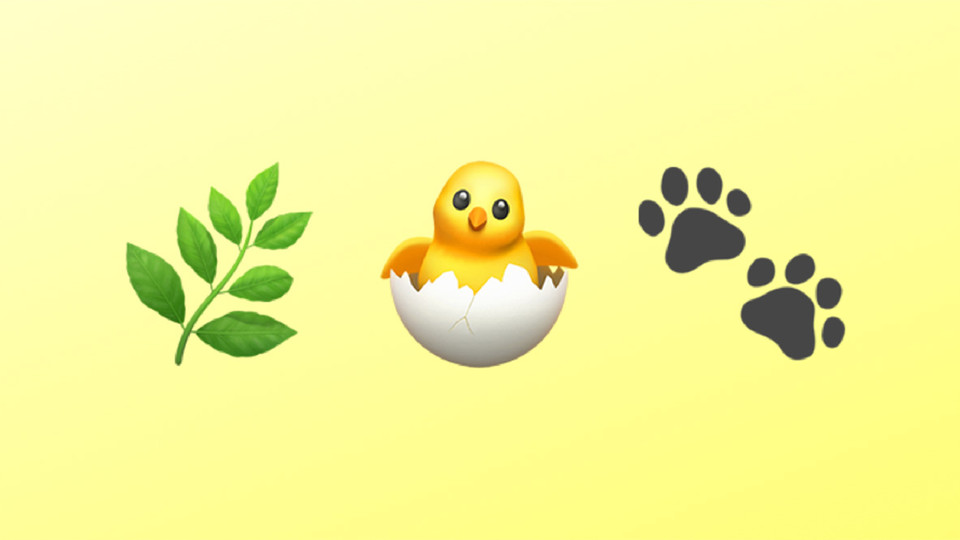
| Meat | Poultry | Seafood
and Fish |
Milk
Yoghurt Cheese |
Eggs | Honey | |
|---|---|---|---|---|---|---|
| Vegan | x | x | x | x | x | x |
| Vegetarian | x | x | x | ✅ | ✅ | ✅ |
| Pescatarian | x | x | ✅ | ✅ | ✅ | ✅ |
| Plant-based | ✅
in small amounts, occasionally |
✅
in small amounts, occasionally |
✅
in small amounts, occasionally |
✅ | ✅
in small amounts, occasionally |
✅ |
Plant-based diets
Plant-based diets are an eating pattern that focuses mainly on eating plants including fruit, vegetables, wholegrains, legumes, nuts and seeds. It is often used as an umbrella term for many different eating styles including vegetarian, vegan, pescatarian and even includes the Mediterranean diet even though it contains a small amount of fish, meat and dairy. This way of eating that centres upon plant-based foods is associated with a lower risk of cardiovascular disease as plant-based foods are low in saturated fat, in addition to being rich in fibre, vitamins, minerals, antioxidants and phytochemicals.
While “plant-based” is often used interchangeably with a vegan diet, individuals may be “plant-based” but not vegan. Many individuals choose to follow a plant-based diet for ethical reasons (animal cruelty), environmental sustainability or health concerns.
Vegetarian diets
Vegetarian diets (also known as lacto-vegetarian) include eggs and dairy but exclude meat, poultry, fish and seafood. The other variations of a vegetarian diet are pescatarian (includes fish, seafood, eggs and dairy, fish only) and ovo-vegetarian (includes eggs only).
Vegan diets
Vegan diets include all animal products and by-products such as honey, royal jelly, gelatin, whey, collagen, casein, lactose, fish-based omega 3 supplements and certain food additives and flavourings derived from animal products.
Refined white sugar in other countries can be made with animal-derived bone char, however, this does not occur in sugar produced in Australia. Veganism is a way of living based on animal rights that extends to all areas of their life, not just their diet! This includes a focus on ethical consumption and sustainability when it comes to diet, skincare, clothing and entertainment.
Navigating the supermarket: What to look for?
Following a vegan or vegetarian diet closely often requires a good knack for reading food labels, and you might just find yourself standing in the middle of the aisle for half an hour reading labels.
1. Scanning the ingredients list is your best bet for making sure you don’t accidently purchase an item that contains animal products
If animal-products are present in a product in detectable amounts, food companies are legally required to include it in the ingredients list. For example, Aeroplane Jelly and Woolworths Jelly have listed gelatine (beef origin) on all its products. On the other hand, Queen Jel-it-in Vegetarian Gelling Powder that can used to create jelly is completely free of animal products and would be suitable for vegetarian and vegans. Whilst there is more demand for vegan products, many companies label their products as “vegetarian” or “plant-based” as the term vegan still remains controversial.
- Casein, whey powder and lactose – These are all derived from milk products.
- Albumin – is a water-soluble protein found in milk and eggs.
- Gelatin – made from the bones, tendons, ligaments and/or skin of animals.
- E901 additive- beeswax
- E966 additive – lactitol made from milk sugar
2. The Shortcut: Search for “Vegetarian or Vegan” labels
I bet you’ve seen Vegetarian-friendly written on the front of food packages but are they accurate?
In Australia and New Zealand, vegetarian or vegan labels on packages are a voluntary claim. Food manufacturers using this label are subjected by fair trading law and food laws and can face heavy penalties for using labels that are misleading or deceptive. Therefore, searching for “Certified Vegan” or “Suitable for Vegetarians and Vegans” is an easy way to spot new products.
The catch?
Australian Food Standards Code does not require non-allergenic processing aids to be declared in the label.
Processing aids can be natural or synthetic substances that help with manufacturing food items and are considered extremely safe. They are often used to improve the nutritional quality and food safety, extend the shelf-life, make the product easier to pack and transport, and improve the consistency and quality of the product.
For example, apple juice may use gelatin to eliminate suspended particles and stabilise added beta-carotene, but this is not required to be on the label. Gelatin is made from the bones, tendons, ligaments and/or skin of animals. In this instance, the gelatin is added to help filter the protein haze but as the gelatin is filtered out and not present in the end product, it is not required to be listed on the ingredients list.
In the last decade, there has been a strong movement towards more plant-based foods and consumers demand for transparency, with Heinz Australia receiving backlash for using beef-based gelatin as a clarifying agent. This has led to many Australian companies ensuring that their products do not include any animal-based products in the production or end-product.
3. Allergen Labelling. What about “may contain X?”
Looking out for allergen labels can also be helpful as milk, eggs, fish, seafood and royal jelly (made from bees) are animal products that are also common allergies in Australia. Therefore, all packaged foods containing these ingredients, components of processing aids or components of food additives must be labelled according.[1] For example, Nescafe chai latte mixes say “Contains: Milk” as it includes whey powder and skim milk powder.
“May Contain” Labels are voluntary statements that are added as a precaution if traces of allergens may be present due to cross-contamination from shared equipment, storage or handling. This is important for individuals with allergies to know, but if you are not allergic then foods that “may contain” a listed animal product are still considered vegetarian or vegan.
4. Which tricky foods should vegetarians and vegans look out for?
Truth is, there’s not enough time in the day to read every single label for every brand and it’s frustrating to read the back of every packet to find that none of them are vegan-friendly. To save you precious time and eyestrain, we’ve listed products that often contain animal products. You might be surprised! Don’t worry, we’ve also listed vegan-friendly alternatives!
- A vegan-friendly option would be Fry’s Artisan Bakery 100% Vegan Brioche Burger Buns
- Vegan-friendly and gluten-free option is: Orgran Buckwheat Pancake
- Looking for low-carb, gluten-free and vegan-friendly pancakes? Lakanto offers a Low-Carb Pancake & Waffle Mix.
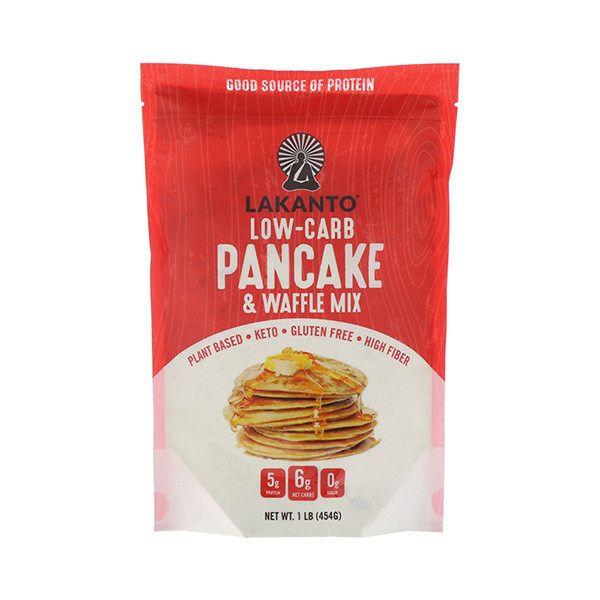
- I’m a firm believer that if adding mayo to your wrap means you pack a homremade lunch or drizzling dressing over your salad makes you eat more vegetables, it’s a good idea! Made with Plants has vegan options for mayonnaise, ranch dressing, Caesar, aioli and even burger sauce.
- Fish sauce and oyster sauce: If you love cooking Asian dishes, it can be difficult to find substitutes for seafood-based sauces. Niulife Cocomino Vegan Fysh Sauce and Ayam Vegetarian Oyster Sauce are both suitable for vegan diets. Additionally, Hoisin sauce and Soy sauce (including Kikkoman) are generally vegan-friendly and made using soy products.
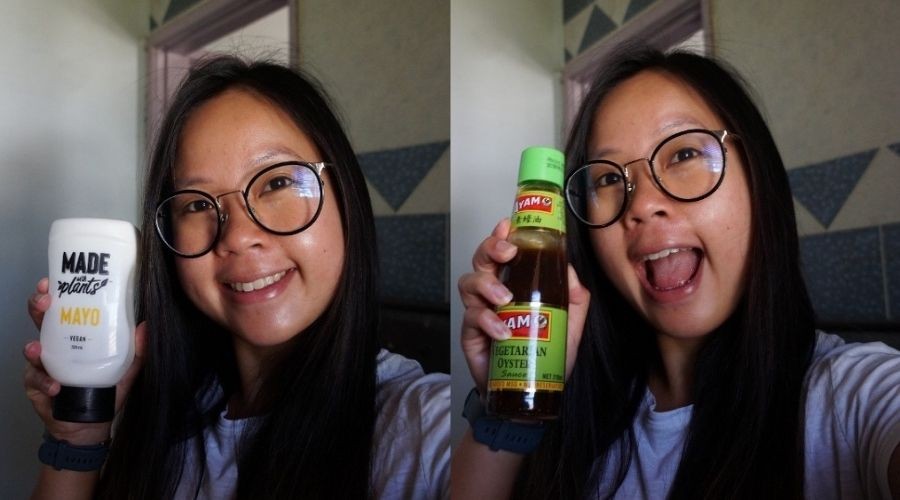
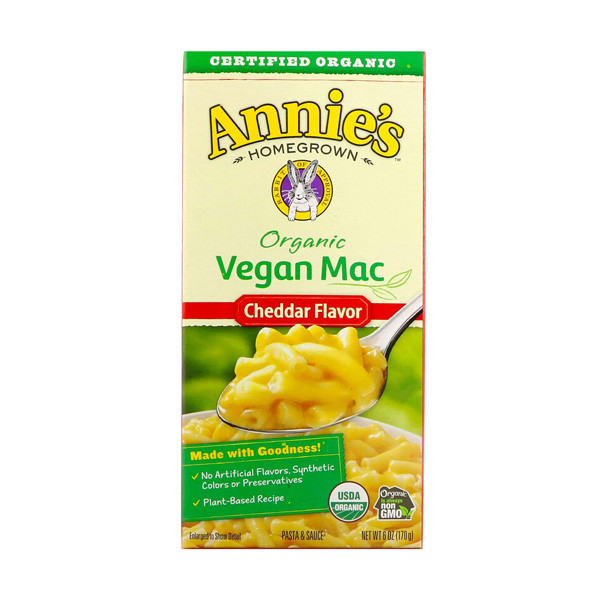
- Chobani’s plant-based range is free of gelatin, lactose and other animal-based thickeners. All their natural flavours are fruit and vegetable based.
- Soy life and Kingland Soy yoghurts are also vegan-friendly and healthy choices.
- Cocobella and Nakula Coconut Yoghurt are also vegan-friendly but low in protein and high in unhealthy saturated fats. I would use coconut yoghurts sparingly to add to meals, instead of as an everyday yoghurt.
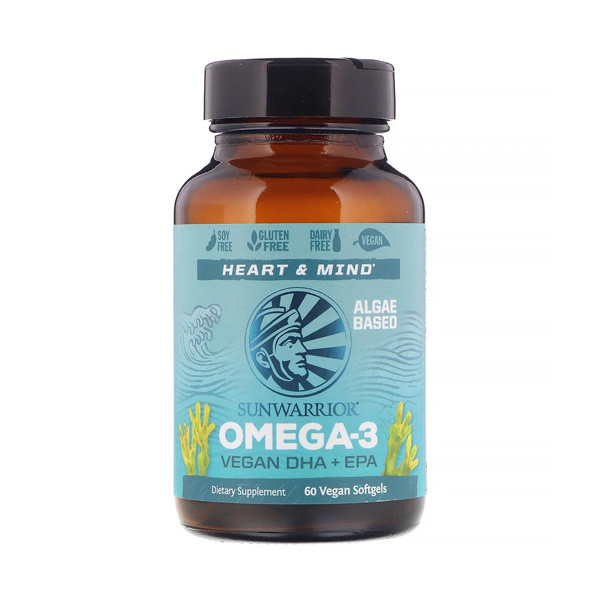
Bonus Vegan-friendly goodies for chocolate-lovers
Are you a chocolate lover but don’t want to pay a premium price tag for vegan-friendly chocolate? Oreo classic and chocolate flavours, Lindt 85% and higher dark chocolate are all vegan-friendly. You might notice that cocoa butter is part of the ingredients list of some of these products. Cocoa butter is actually derived solely from cocoa beans and contains no animal products! You might also be surprised and delighted to find out that Biscoff and Cadbury drinking chocolate are vegan-friendly!
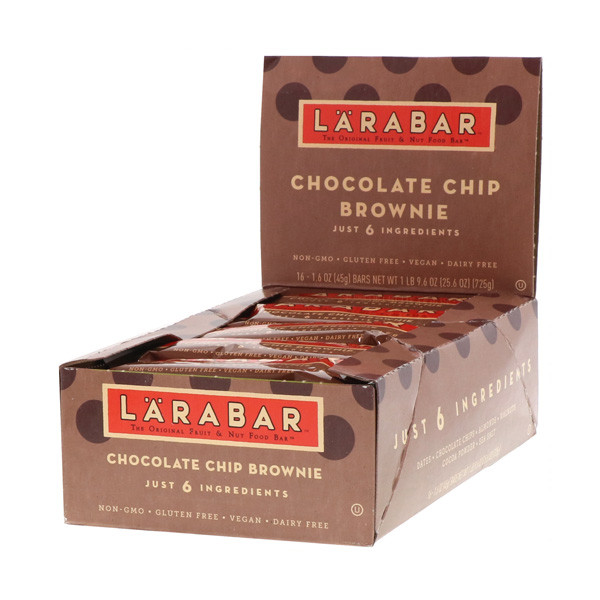
Whether you choose to follow a plant-based, vegetarian or vegan diet, there are so many delicious and nutritious food and drinks now available.


